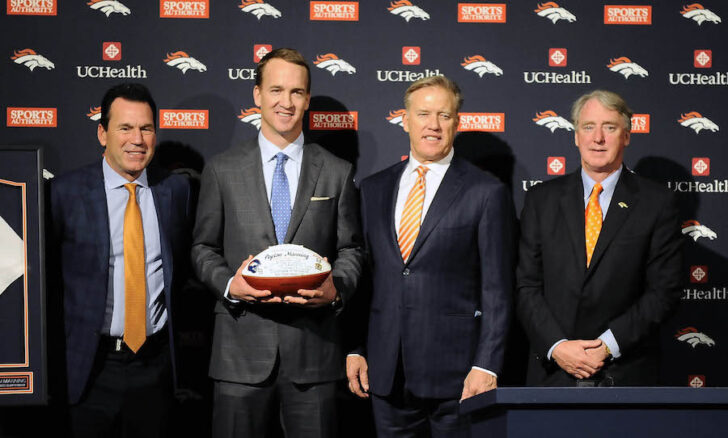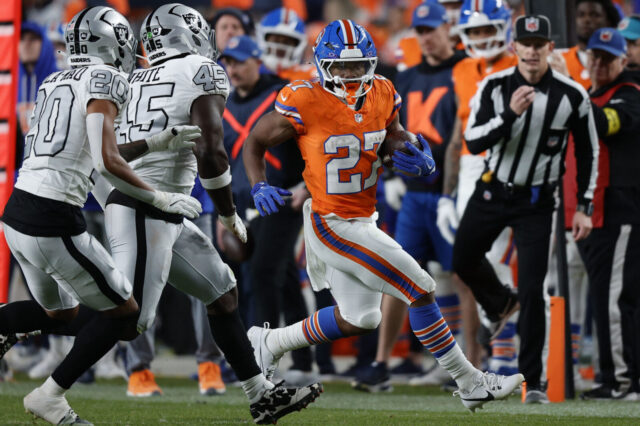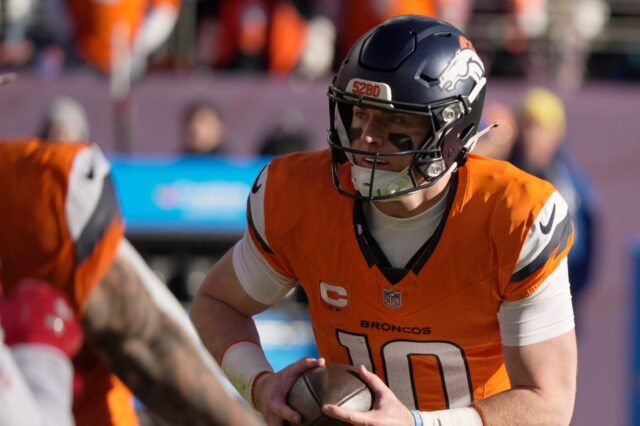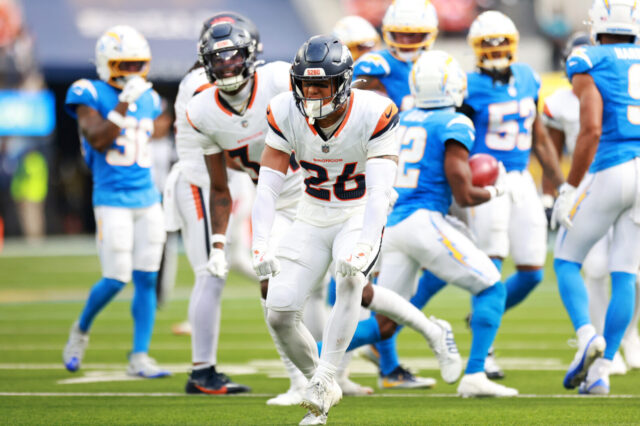Without Peyton Manning, the Denver Broncos are not Super Bowl 50 champions. Without the Denver Broncos, Peyton Manning isn’t the only quarterback in NFL history to lead two different teams to the Lombardi Trophy.
For four years, Manning and the Broncos enjoyed a symbiosis that catapulted the pair to heights neither would have accomplished otherwise.
Thanks to Manning, the Broncos can say they’ve won a Super Bowl without John Elway and Terrell Davis. Thanks to the Broncos, Manning has a winning playoff record and now has a viable argument for “best quarterback ever,” not just “best regular season quarterback ever.”
In 2012, Peyton Manning was coming off four neck surgeries and year on the sidelines. He had been released by the only NFL team he had ever known – thrown to the curb for a newer, healthier model, Andrew Luck. Critics wondered how the fusion of two vertebrae in his neck could survive the punishment of more time in the most violent league outside of MMA, especially on a player 36 years old – even if he was a four-time MVP.
The Broncos, meanwhile, were coming off a year in which they made the playoffs (and even won a Wild Card game) winning the AFC West at 8-8. But they proved to be smoke and mirrors, getting blown out in the Divisional round by Tom Brady and the Patriots. Tim Tebow had inspired fans, but his long-term viability at quarterback was as questionable as Manning’s neck. John Elway, entering his second year as general manager, faced a point of no return as he tried to revive his beloved franchise – one that had finished 4-12 the year before his arrival.
Elway’s successful pursuit of Manning has been lauded as perhaps the greatest free agent signing in the history of the NFL, while Manning gained just as much from Elway and the organization who gave the future Hall of Fame quarterback the greatest second act of any NFL career.
The Denver Broncos made it clear when they signed Manning that they would do just about anything to send him off in the same manner they did for Elway: As a Super Bowl champion. They routinely landed top free agents like Emmanuel Sanders, DeMarcus Ware, Aqib Talib and Wes Welker, while also surrounding Manning with familiar faces like Jacob Tamme and Brandon Stokley.
Manning returned the favor by educating and elevating the play of Broncos draft picks like Demaryius Thomas, Knowshon Moreno, Eric Decker and Julius Thomas, not to mention the four-year understudy program for Brock Osweiler.
In Manning’s retirement press conference, John Elway remarked that Manning became his greatest recruiting tool in free agency. It was clear in Manning’s retirement speech that Elway and Broncos owner Pat Bowlen, and their singular focus on winning a championship, was what separated them from other suitors and put him in Denver in the first place.
Elway didn’t meddle during Manning’s first two years, mostly taking a laissez-faire approach to the on-field product executed by Manning and then-head coach John Fox. Manning was a coach on the field, revamping the entire Broncos offense and in 2013 turning it into the most prolific scoring machine the NFL has ever seen. After a Super Bowl XLVIII blowout, Elway redoubled his efforts and in two years created the greatest defense in franchise history to balance the load for his quarterback.
Manning never once complained when the defense failed him. He fell on the sword with every loss, and gave credit to his teammates with every win. And he stood up for his offensive line, even when they were surrendering sacks and he was throwing interceptions at an unprecedented rate last year.
The five other franchises considered front-runners for Manning’s services in 2012, Arizona, Kansas City, Philadelphia, Tennessee and the New York Jets, all experienced personnel overhauls – either at head coach or in the front office – within one year of Manning’s decision. Not exactly stable foundations. Elway, meanwhile, was solid as a rock, giving John Fox all the time in the world to prove he could make it work with Manning.
When it was abundantly clear that Fox and his coaching staff had quit on the team, Elway made the bold move to hire Gary Kubiak and reinvent the offense – one that was predicated on the run and play-action.
The 39-year-old quarterback who had played almost exclusively from shotgun formation over the second half of his career obliged the change and again started working on his footwork under center and on bootlegs. He learned an entirely new playbook – one that asked him to be a game manager, not a game winner.
As Manning was hobbled with injury in his final season, Elway and Kubiak had the trust to allow Manning every opportunity to tough it out in pursuit of multiple NFL records, but the sagacity to know when it was time to put him on the shelf to heal and trust his protege. They had the guts to name him their backup when that protege succeeded, and the quick trigger to re-insert him when the team needed an all-time great to save their season from the brink of collapse.
Gary Kubiak told a fantastic story during Manning’s retirement press conference about the mettle Manning showed in coming back from injury, not to mention the importance he played in leading the team upon his return.
Manning left it all on the field for Denver, even when that meant an embarrassing, four-interception performance in his last regular season start before being sidelined (benched) because of his injury. He learned from his mistakes early in 2015 and refused to make them during a playoff run that delivered a Super Bowl title for the man, a third for the team.
Of those five other teams in the running for Manning in 2012, only Arizona and Tennessee earned so much as a meeting. Would either of those migratory franchises have had the stability within the organization to withhold the stresses the Broncos and Manning endured over those final difficult weeks? Do they have a fan base strong enough to demand great performances, as Denver did when it had the audacity to boo Manning when he struggled at times but cheer him at an unprecedented level upon his return?
“Everything ended the right way for the Denver Broncos,” Kubiak said in his public goodbye to Manning. “And what a ride it was,” he said about this past season, “but it wasn’t easy. It wasn’t easy.”
Would any of those other five franchises who courted Manning have been able to endure the difficultly it took to finally deliver Manning’s second world championship? Those five teams have trotted out more than 17 quarterbacks among them since 2012. Would they have been as patient as Denver when Manning struggled as he did in his final year? Or when the team started 2-3 his first year?
Would Manning have had the same trust in those teams that he showed in John Elway, a man who endured a similar run at the end of his career?
The Broncos won four consecutive division titles with Manning, a feat never accomplished before in team history. Their 50-14 regular season record during that time is the best in football. Manning added 45 regular season wins to his resume, tying him for the most all-time. His 200 total wins are the best in league history.
Was any of that possible with the Cardinals, Eagles, Jets, Chiefs or Titans? Possible, yes. But not likely.
Peyton Manning and the Denver Broncos were a perfect match; they found one another at just the right time. Together, their destinies are forever changed, their already sterling legacies improved more than they ever would have been apart.



